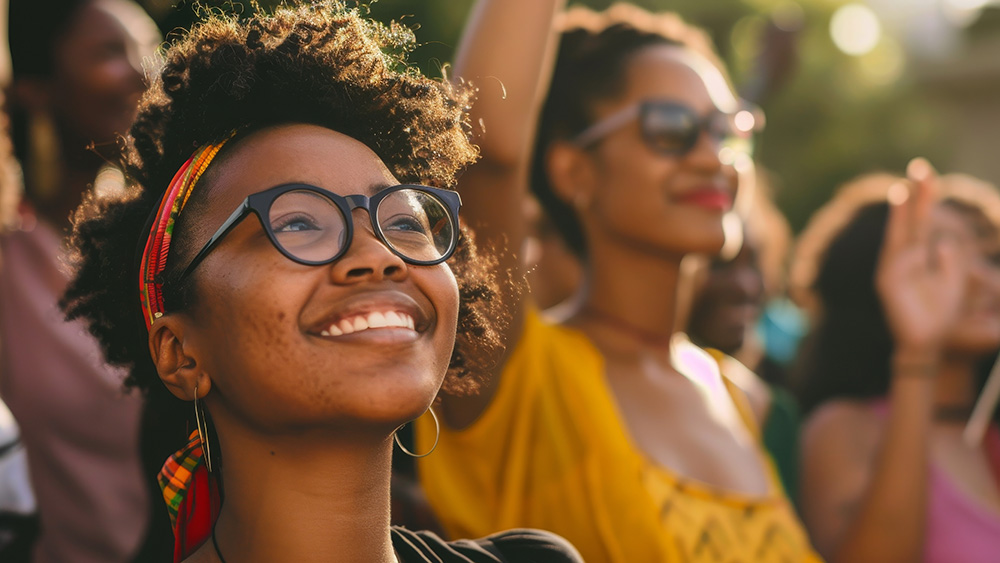
Juneteenth events honoring Black heritage — in museums, parks, neighborhoods, and backyards — are part of the summer celebration time across the United States.
In the three years since Juneteenth (June 19) officially became a national holiday, the number of events celebrating what some have called America’s second Independence Day have surged. There’s no official count, but jubilant music, food, and art-filled Juneteenth events honoring Black heritage are proliferating across the United States in mid-June in museums, parks, neighborhoods, and backyards.
Doreleena Sammons Hackett, director of grants administration for the Washington, D.C.-based Society of Public Health Education (SOPHE) pointed out another Juneteenth trend to me: Community celebrations increasingly are adding wellness fairs that provide education and screening for health conditions, such as diabetes and heart disease, that disproportionately affect Black Americans. Blacks have higher rates of diabetes, hypertension, and heart disease than other groups, and Black adults are much less likely to survive prostate, breast, and lung cancer than white adults.

Doreleena Sammons Hackett
For the first time this year, Houston’s Emancipation Park, the site of one of the oldest Juneteenth celebrations in the country, will include a health fair as part of its schedule of Juneteenth events, with health screenings and panel discussions focusing on access to health care and maternal and mental health in Black communities. Health education and other activities promoting wellness have been woven into — or are the main event at —Juneteenth celebrations in hundreds of locations across the country, from Oakland, California to Durham, North Carolina to Minneapolis.
I reached out to Hackett after reading a post she wrote for SOPHE’s website, “What Is June 19th or “Juneteenth” and Why Is it So Important?” In it, she told the founding story of Juneteenth, of how the news of their freedom reached enslaved people in Texas in 1865, more than two years after the Emancipation Proclamation became law. Hackett also wrote about the long struggle the Black community has had to celebrate Juneteenth and efforts, like those of 97-year-old activist Opal Lee, a resident of Fort Worth, to ensure that it is recognized as a national holiday. Juneteenth “should be a time of celebration for Blacks everywhere,” Hackett wrote. “Please, let us keep Juneteenth respected, revered and never forgotten!”
Along with the celebrations and barbecues, Hackett suggests that individuals could recognize Juneteenth by performing acts of service. “I really hope that all who have the holiday off from work participate in a public service project,” she wrote in an email to Convene, “like getting out the vote, helping in a homeless shelter, or telling people about the risks for cancer, diabetes, and heart disease. Or perhaps spreading the word about Black infant mortality and maternal mortality.”
